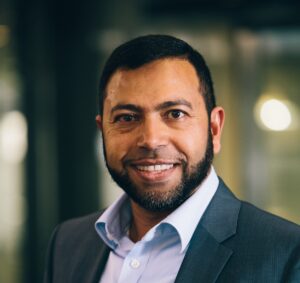The size of Africa’s investment opportunity in renewable energy represents a potential US$193-billion by 2031. However, realising this potential will require access to innovative funding models and a robust secondary finance market to recycle and widen the available capital pool. This is according to new research from global consultancy firm Wood Mackenzie, commissioned by Revego Fund Managers and MOBILIST.
Amid unrelenting climate change, a widening energy deficit, and the need to support economic growth, Africa needs to accelerate its transition towards net zero by deepening the pipeline of large-scale renewable energy projects on the continent. While Africa accounts for almost 20% of the world’s population, the research shows that the continent currently attracts just 3% of global energy investment. The issue is particularly acute in Sub-Saharan Africa (SSA), where massive underinvestment in electricity infrastructure has created a persistent lack of electricity access. “The Wood Mackenzie report estimates that achieving universal electricity access in SSA and shifting to greener sources by 2031 will create an addressable market opportunity from wind, solar and storage estimated at US$127 billion through the end of the decade with the total addressable market for grid investments, including transmission and micro-grids, having the potential to reach US$66 billion during the same period,” explains Ziyaad Sarang, Chief Investment Officer at Revego Fund Managers. “To date, the primary finance market in the form of Development Finance Institutions (DFI) and commercial banks has provided the funding for these large-scale renewable energy projects. However, to truly realise the potential in this space we need to look at recycling capital.” One of Revego’s primary objectives is to provide structured asset exit opportunities for developers to execute their farm-down strategies and recycle their capital towards new development assets while providing robust risk-adjusted returns to investors through regular dividends. “Access to financing in the primary market is limited due to the high-risk nature of early-stage development, as raising capital impacts developer and independent power producers (IPP) balance sheets. Currency and regulatory risks further compound the early development stage of many assets,” says Sarang. “DFIs focus on new build projects, because their main objective is to put more megawatts on the grid. This skews market incentives toward the primary finance market. Little consideration is given to recycling capital, particularly equity, to invest in new projects as funded builds need to continue.” Developers and IPPs in more mature markets like the US and Europe already consider the secondary market a key enabler for market access growth and increased returns. As the SSA market matures, developers and IPPs will increasingly encounter funding constraints that limit their growth if they cannot sell, or ‘farm down’ de-risked assets to a secondary market, as financing new projects through typical funding lines encounters limitations. Selling operational assets to larger institutional investors with lower-risk appetites allows developers and IPPs to recycle scarce equity for new, higher-risk development and construction assets, which are vital to accelerate Africa’s renewable energy transition and realise the region’s full market potential.“The secondary market represents an opportunity to widen the available capital pool and accelerate its redeployment into additional renewable energy projects, increasing the pipeline of bankable projects over time to grow the market and realise long-term value creation,” elaborates Sarang.
“As the UK’s flagship public markets programme, MOBILIST is pleased to partner with Revego Fund Managers and Wood Mackenzie in highlighting the opportunity that secondary markets present in enabling clean energy financing at scale in Africa, helping to deliver energy access for all, economic growth, and a more habitable planet,” said Ross Ferguson, who leads the MOBILIST programme at FCDO. According to forecasts in the report, secondary market investments in the SSA region are expected to grow as cumulative transactions for solar and wind assets reach 10 GW and 14 GW respectively by 2031. Various public-market vehicles can play a role in deepening the capital pool in the secondary market for these renewable energy investments. These include share issuances by listed developers and IPPs, open-ended funds such as unit trusts (mutual funds) and exchange-traded funds (ETF), and exchange-listed closed-end funds (a type of mutual fund that issues a fixed number of shares through a single initial public offering). Another effective option is a YieldCo, such as Revego, which is a publicly traded or a privately owned fund that owns a portfolio of acquired operating renewable energy assets with contracted revenues, long-term predictable cashflows, and lower risk premiums. The YieldCo pays for these assets by selling shares to investors, which frees up capital for the developers and IPPs to invest in new assets. MOBILIST estimates indicative internal rates of return (IRR) across utility-scale renewable energy assets in several African markets in the region of 15-21%, which exceeds Sovereign bond yields and the weighted average cost of capital by notable margins in each market. These returns are based on newly built utility scale renewable energy assets, incorporating the full value chain from origination to operations and maintenance. “Businesses and governments need such vehicles to lead the transition to a sustainable future. With these potential risk-adjusted returns, building a thriving secondary market will generate significant investment opportunities in Africa’s energy transition. Leading by example, this should help trigger the systemic change in the financial and energy markets needed to mobilise the much-needed private capital for a successful energy transition in Africa,” concludes Rory McCarthy, Director, Power & Renewables Consulting EMEA at Wood Mackenzie.






